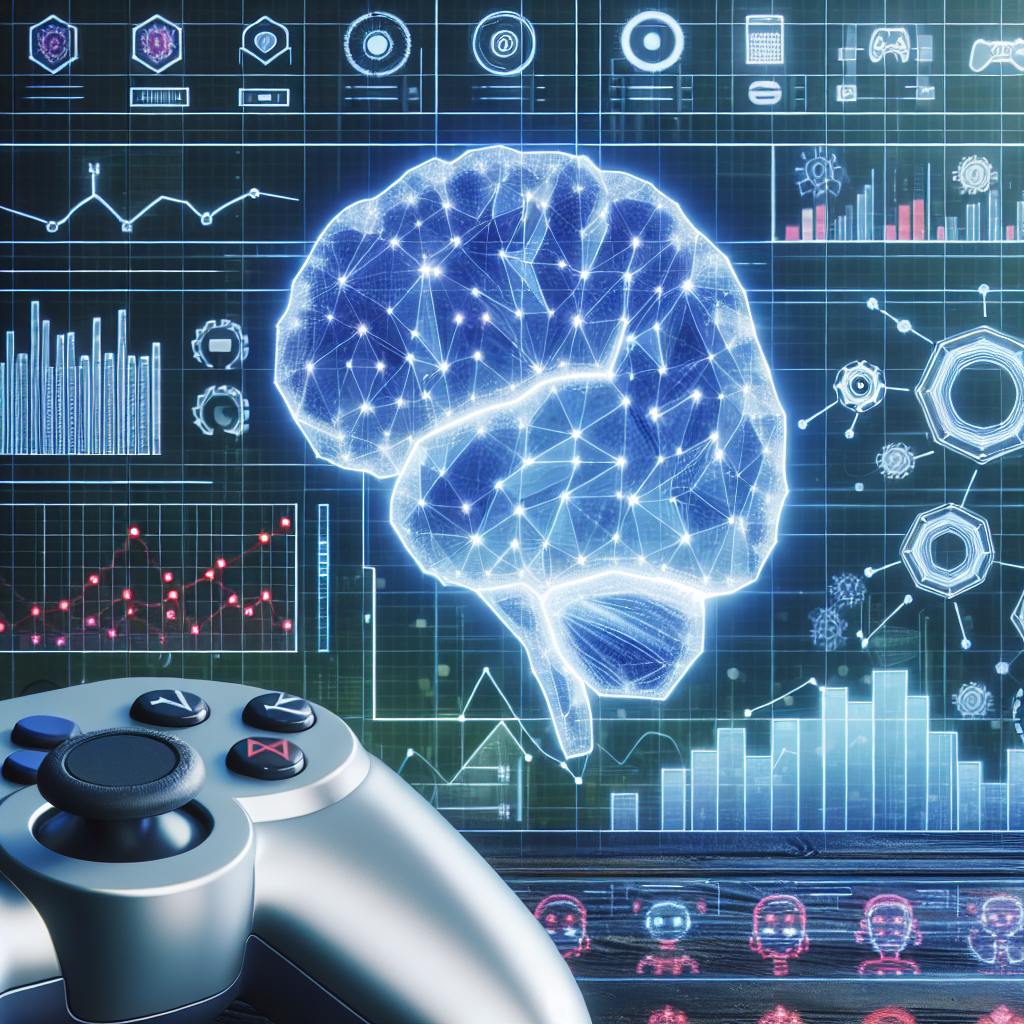The Influence of AI on Game Analytics
In recent years, the gaming industry has been revolutionized by the integration of artificial intelligence (AI) into game analytics. AI has the ability to analyze vast amounts of data in real-time, providing developers with valuable insights into player behavior, preferences, and engagement. This has led to the creation of more personalized gaming experiences, improved game design, and enhanced player retention. In this article, we will explore the influence of AI on game analytics and how it is shaping the future of the gaming industry.
AI in Game Analytics
AI has become an integral part of game analytics, helping developers to make data-driven decisions and optimize player experiences. By leveraging machine learning algorithms, AI can analyze player data, such as in-game behavior, interactions, and preferences, to identify patterns and trends. This enables developers to gain a deeper understanding of their player base and tailor their games to meet the needs and expectations of their audience.
One of the key areas where AI is making a significant impact is in player segmentation. By using AI algorithms, developers can group players based on their behavior, demographics, and preferences, allowing them to create targeted marketing campaigns and personalized experiences. This not only improves player engagement but also helps developers to maximize their revenue by offering tailored in-game purchases and promotions.
AI is also being used to enhance game design and development. By analyzing player data, AI can provide insights into how players interact with the game, what features they enjoy the most, and where they may be experiencing challenges. This information can be used to optimize game mechanics, balance difficulty levels, and create more engaging gameplay experiences. Additionally, AI can help developers to predict player behavior and adjust the game in real-time to keep players engaged and entertained.
Furthermore, AI is revolutionizing player support and community management. Chatbots powered by AI can provide instant support to players, answering common questions, providing tips and guidance, and resolving issues in real-time. This not only improves player satisfaction but also reduces the workload on customer support teams. AI can also help developers to monitor player feedback and sentiment on social media and forums, allowing them to address concerns and make improvements to the game based on player feedback.
Overall, the integration of AI into game analytics is transforming the gaming industry, enabling developers to create more engaging, personalized, and profitable games. With the power of AI, developers can gain valuable insights into player behavior, optimize game design, and enhance player experiences, leading to increased player retention and revenue.
FAQs
Q: How does AI analyze player data in game analytics?
A: AI uses machine learning algorithms to analyze player data, such as in-game behavior, interactions, and preferences, to identify patterns and trends. This allows developers to gain insights into player behavior and tailor their games to meet the needs and expectations of their audience.
Q: How does AI help in player segmentation?
A: AI algorithms can group players based on their behavior, demographics, and preferences, allowing developers to create targeted marketing campaigns and personalized experiences. This improves player engagement and helps developers maximize their revenue.
Q: How does AI enhance game design and development?
A: AI can analyze player data to provide insights into how players interact with the game, what features they enjoy the most, and where they may be experiencing challenges. This information can be used to optimize game mechanics, balance difficulty levels, and create more engaging gameplay experiences.
Q: How does AI revolutionize player support and community management?
A: Chatbots powered by AI can provide instant support to players, answering common questions, providing tips and guidance, and resolving issues in real-time. AI can also help developers monitor player feedback and sentiment on social media and forums, allowing them to address concerns and make improvements to the game based on player feedback.
In conclusion, the influence of AI on game analytics is reshaping the gaming industry, enabling developers to create more engaging, personalized, and profitable games. By leveraging the power of AI, developers can gain valuable insights into player behavior, optimize game design, and enhance player experiences, leading to increased player retention and revenue.

